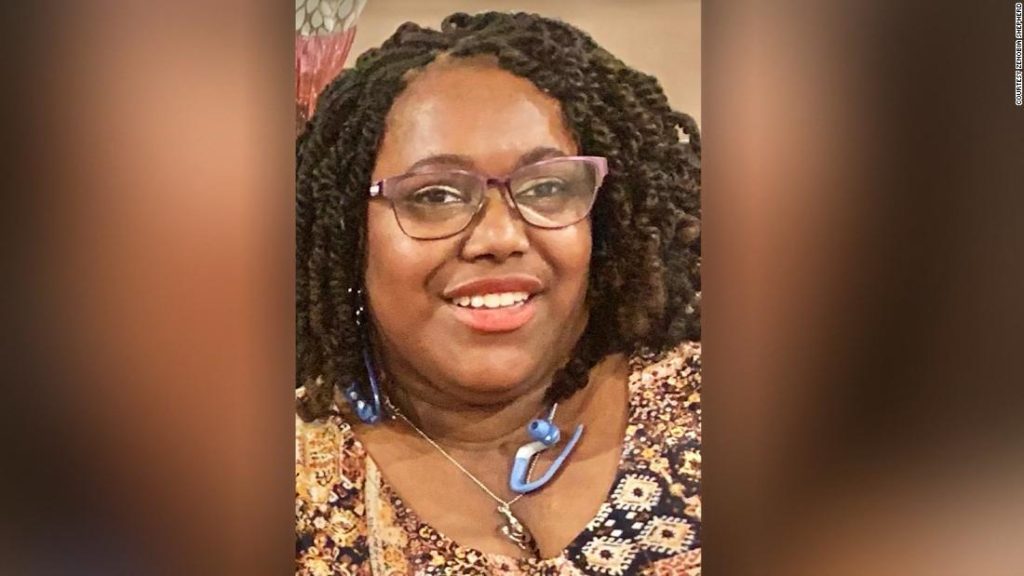
Wednesday
The tragic coronavirus death of a Maryland grocery store clerk with cerebral palsy reminds me of a death in Toni Morrison’s Song of Solomon, which I’m currently teaching remotely to my Composition and Literature course. We see similar levels of corporate insensitivity in both cases.
A 27-year-old grocery store clerk from Maryland wanted to keep working through the coronavirus pandemic, even though her job put her at risk. Leilani Jordan had a disability, but she told her mom she wanted to continue working at Giant Food because she wanted to help people, CBS affiliate WUSA-TV reports.
However, Jordan’s last day at work was March 16. Giant Food officials said on March 28, the store learned that Jordan was sick. She was hospitalized with coronavirus symptoms and tragically lost her battle with the disease, Giant Food confirmed to CBS News.
According to Jordan’s mother Zenobia Shepherd, Jordan loved helping the elderly and saw herself as especially needed when other workers stopped showing up. In an interview with MSNBC, Shepherd “said her daughter told her the store was short-staffed and that Giant Food was not providing gloves and that she had to bring her own hand sanitizer to work.” And then there’s this:
Through tears, Shepherd said Giant Food gave her a certificate marking Jordan’s six years of service at the store, as well as her last paycheck. “She would’ve loved to receive this herself. Leilani’s paycheck. I got this paycheck yesterday for twenty dollars,” Shepherd said through tears. “Twenty dollars and sixty four cents. My baby’s gone because of $20.64. You know what using the proper PPE could’ve done for my baby?”
At least Shepherd calls out Giant Food for its insensitivity. In Song of Solomon, young Guitar is haunted by the memory of his mother expressing gratitude to the insensitive sawmill owner after her husband dies in an accident. While exhibiting a shocking disregard for the body, he thinks he can make everything okay by giving the family $40 while his wife bakes divinity for the children:
[Guitar] remembered anew how his mother smiled when the white man handed her the four ten-dollar bills. More than gratitude was showing in her eyes. More than that. Not love, but a willingness to love. Her husband was sliced in half and boxed backward. He’d heard the mill men tell how the two halves, not even fitted together, were placed cut side down, skin side up, in the coffin. Facing each other. Each eye looking deep into its mate. Each nostril inhaling the breath the other nostril had expelled. The right cheek facing the left. The right elbow crossed over the left elbow. And had had worried then, as a child, that when his father was wakened on Judgment Day, his first sight would not be glory or the magnificent head of God—or even the rainbow. It would be his own other eye.
Even so, his mother had smiled and shown that willingness to love the man who was responsible for dividing his father up throughout eternity. It wasn’t the divinity from the foreman’s wife that made him sick. That came later. It was the fact that instead of life insurance, the sawmill owner gave his mother fifty dollars “to tide you and them kids over”…
In its defense, Giant told CBS that its stores always have available “hand sanitizer and/or cleaning products” (soap?) and that employees “have also always been allowed to wear gloves” (but are mandated to do so only if they work as a food service associate).
I’m dubious that they have done more than the minimum, which if true is also the case with many companies. Frontline workers in the food industry are experiencing high levels of illness, so much so that recently some at McDonald’s and Burger King franchises in southern California went on strike over unsafe conditions.
And then, of course, there’s the Trump administration’s own tardiness in ensuring that the nation’s hospitals have proper PPE. Nor is there a nation-wide testing plan, a prerequisite to reopening the economy. If Guitar’s mother is grateful for $40, will there be Americans grateful to Trump’s efforts to placate the public?
In the novel, Guitar’s anger goes so deep that eventually he becomes a racial avenger, joining a group that murders a white person for every black person killed by white supremacists. Morrison makes clear that such a response is abhorrent and counterproductive, but she understands the outrage.
What’s a healthy way to channel our own anger? Step 1, I suppose, is finding ways to pressure the president and rightwing pundits to abandon magical thinking and engage in serious policy. If they don’t, there will be thousands more Leilani Jordans.

